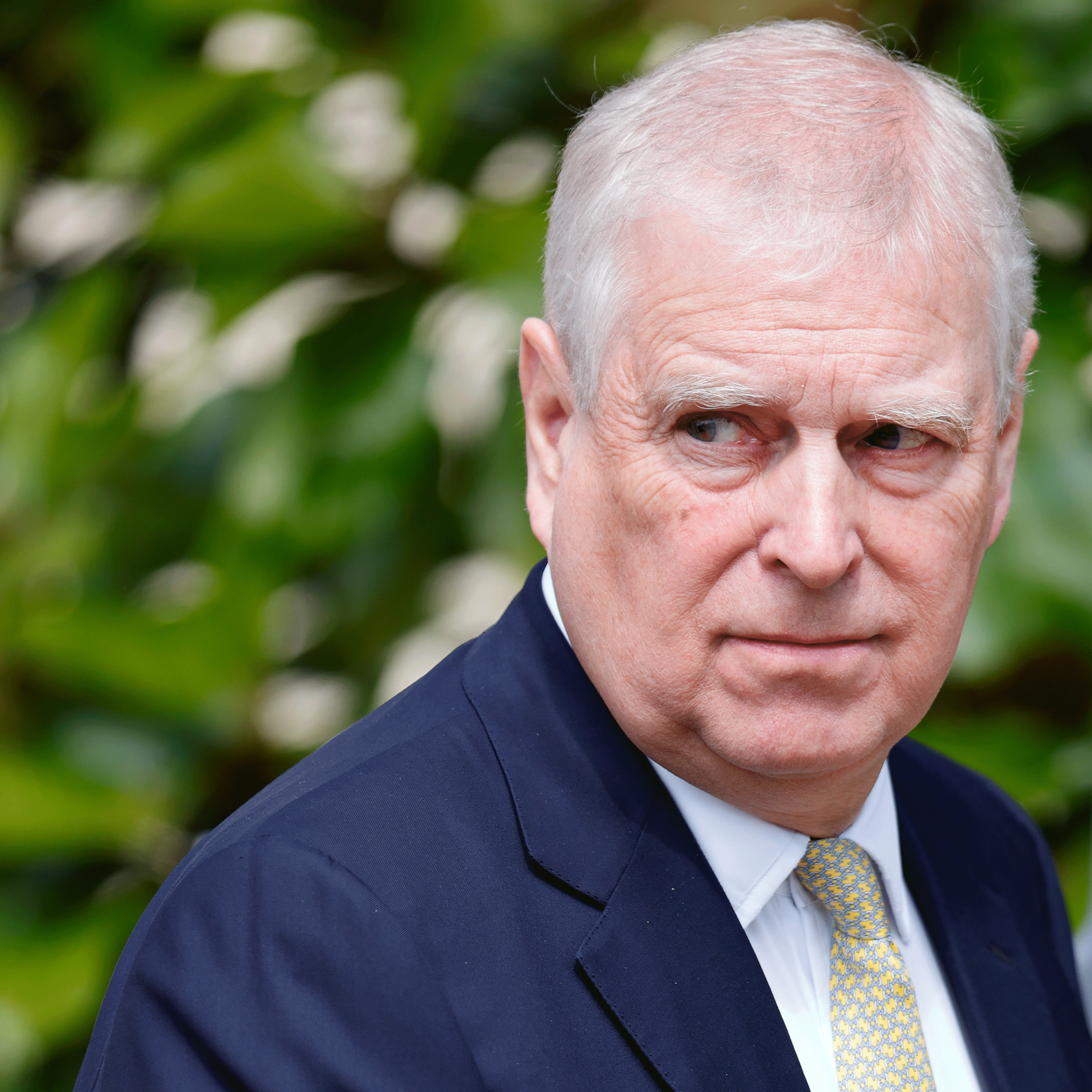112: Footies #6: Hospital Passing-The-Buck
Press play and read along
Transcript
Speaker 1 It's time to head back to school and forward to your future with Carrington College. For over 55 years, we've helped train the next generation of healthcare professionals.
Speaker 1 Apply now to get hands-on training from teachers with real-world experience. And as few as nine months, you could start making a difference in healthcare.
Speaker 1
Classes start soon in Pleasant Hill, San Leandro, and San Jose. Visit Carrington.edu to see what's next for you.
Visit Carrington.edu/slash SCI for information on program outcomes.
Speaker 3
Level up with the new Crypto.com Visa Signature Credit Card. It works like other credit cards.
Simply swipe, tap, or spend in store and online to earn attractive crypto rewards.
Speaker 3
Spend in dollars and earn in crypto with the new Crypto.com Visa Signature Credit Card. Learn more at crypto.com slash cards.
Credit card offers are subject to credit approval.
Speaker 3 Crypto.com Visa Signature Credit Card Accounts are issued by Commedity Capital Bank pursuant to a license from Visa USA Inc.
Speaker 3 Visa is a registered trademark of Visa International Service Association and used under license.
Speaker 2 Page 94, The Private Eye Podcast.
Speaker 4
Hello and welcome to page 94. My name is Andrew Hunter Murray.
Here we are with just one day to go until the Paul Foot Awards, our mini-series, is drawing to a close. What a time it's been.
Speaker 4
You've heard fantastic stories. You've heard about Crispin Odie.
You've heard about child and adolescent mental health services. You've heard about the A96.
You've heard all sorts of stuff.
Speaker 4
And now you're about to hear our final shortlisted shortlisted entrant. The awards are tomorrow night.
It is no exaggeration to say that lots of people are very excited about it.
Speaker 4 Here is shortlist D number six. Take it away.
Speaker 2 My name is Rebecca Thomas and I'm health correspondent for The Independent.
Speaker 4 And Rebecca, what is the story that's brought you to the Pool Foot Awards this year?
Speaker 2 Essentially, it's a campaign focused on systemic safety issues within the mental health care system.
Speaker 4 And
Speaker 4 what was the first, if you like, big story that you worked on at this campaign?
Speaker 2 It was an expose on a privately run group of mental health hospitals, children's mental health hospitals, because patients were coming forward talking about the really awful experiences there.
Speaker 2 And I actually was in contact with another journalist at Sky News who was familiar with the service, and we combined forces and found dozens of patients in the end sharing really horrific stories.
Speaker 4 So, what was happening at these private hospitals?
Speaker 2 Various things. So, for example,
Speaker 2 treatments such as immediately restraining children, you've got young girls being restrained by five or six male nurses, bruised and really injured throughout these restraints, and then you have
Speaker 2 a lack of staffing in general. At one of these hospitals, currently a police investigation into a young girl's death within one of the units.
Speaker 4 That's not Huntercombe, is it? That is Huntercombe.
Speaker 4 And that's part of this chain of hospitals owned by the Active Care Group. Is that right?
Speaker 2 They're now, yeah, they're now owned by the Active Care Group.
Speaker 2 They were previously owned by Four Seasons at one point, which
Speaker 4 and you said that lots of patients had stories that they wanted to tell and get out there.
Speaker 4 Was that something that evolved naturally once you'd started reporting on this? People more people wanted to let you know that they had had a a similarly awful experience at these hospitals?
Speaker 2 Yes, essentially.
Speaker 2 So, what by the nature of my work, because I've done a lot of mental health stories, patients have had come forward, a number of patients had come forward about these services already.
Speaker 2 And then you get connected with the campaign groups who ha who speak to a lot of patients and they start to come forward, forward and it's really a snowball effect.
Speaker 2 We published our first piece and then that led to dozens more coming forward and we ended up with
Speaker 2 speaking to
Speaker 2 over fifty patients.
Speaker 4 Across two decades of basically shabby care being given out. And I think, am I right in saying that there's now a large lawsuit being brought against the active care group?
Speaker 2 There are, yes, there are, well, there are more than 50 clinical negligence claims in the works.
Speaker 4 Wow.
Speaker 2 Against the various hospitals.
Speaker 4 So that's one aspect of the campaign, but you mentioned there are lots of others as well. Can you tell me about Nicholas?
Speaker 2 Yes, so one story which I think was particularly awful, I found this young man, 27 years old,
Speaker 2 he had been
Speaker 2 in and out of the most awful places just by virtue of him having a learning disability and autism which
Speaker 2
care services couldn't cater to. So he'd been in dementia wards, for example, psychiatric units.
he doesn't have a mental health problem.
Speaker 2
And through that decade of his life, he's lost the ability to talk. He's non-verbal now.
Lost the ability to walk and do things for himself. So he's bedbound.
Speaker 4 Am I right in thinking that's a source he was only sort of able to type from a from bed from his from a darkened room because you obviously need to communicate with your sources about what they've been through.
Speaker 4 That must have been difficult, I mean, for him and also for you in terms of getting to the heart of the story.
Speaker 2 Yes, that wasn't, it was the first time I'd done an interview of the sort. So, at the time, he was actively in a psychiatric unit.
Speaker 2 Obviously, there are issues of consent and safeguarding.
Speaker 2 So, at the time, we had a staff member who was willing to accompany him during the interview and ensure that he could understand and consent to the questions I was asking. And
Speaker 2 so, we had a Teams call, and I asked him questions, and he would type back.
Speaker 2 And it was quite striking just to see him from that room and
Speaker 2 Really heartbreaking.
Speaker 4 How do people end up in situations like that?
Speaker 2 Well, in Nicholas's case, so for example, sensory reactions can be mistaken for a mental health crisis, and the social care system around him wasn't able to properly cater to his needs.
Speaker 2 And so that can bound in things. You end up in more of a crisis, and the system thinks, okay, the only thing we can do with you then is admit you to inpatient units,
Speaker 2 give you antipsychotic medication, even if it's not appropriate, because that's the way that's the way our system is built.
Speaker 4 Yeah, I suppose what I'm trying to ask is, who should be going to prison over this?
Speaker 4 Who should be liable? Because you're talking about the system, and it's quite hard to cling on to where exactly the fault lies, what has gone wrong, that means this appalling injustice is occurring.
Speaker 2 Two-places, I guess you can look at the actual care being provided. And so,
Speaker 2 he was within private residential homes where he had horrific care and staff members treated him so poorly, borderline, well, not borderline, but abusive care.
Speaker 2 So there you have to target the providers, I think, that are providing this care.
Speaker 2
But there is a huge responsibility, I think, on NHS commissioners, social care commissioners who are giving that money away, sending patients to these places. Right.
Partly because there is no...
Speaker 2 there is no other option
Speaker 2 because we starved our NHS run services services and stripped away the bed base. But
Speaker 2 yeah, that's a very long-winded answer of saying I think you need to target the providers, but also very heavily that the commissioners, the NHS, social care local authorities have a responsibility here.
Speaker 4 So it's partly not enough money and partly where it's being spent?
Speaker 2 Yes, and then you can look to government, right? For how long has the mental health care services really been deprioritised, staffed for cash?
Speaker 2 Only within the last five years has it had more of a boost?
Speaker 4 One One of the other aspects of your story was about sexual abuse in the mental health care system. Can you tell us a little bit about that, please?
Speaker 2 That was a really difficult story to cover, and I think there is a systemic problem, particularly within mental health inpatient care, because you've got this perfect storm of patients who are very vulnerable and often not believed.
Speaker 2 And so, when it comes to sexual assault allegations as it is as a society, we are not good at well, we know that those aren't really properly followed through.
Speaker 2 The follow-through weight conviction rate for sexual assault in general is poor.
Speaker 2 But when you take that into a system where patients are vulnerable, not believed as it is, blood with drugs, and within a hospital unit, for example, where a lot of patients can present hypersexual behaviour, there is a power dynamic there with staff and patients.
Speaker 2 It creates an environment where patients are at risk.
Speaker 4 Yeah. And is that across the board? Is it more common in private institutions or is it just
Speaker 4 present everywhere?
Speaker 4 I think, well,
Speaker 2 from what I've seen and from the investigation, it's present as everywhere.
Speaker 4 However,
Speaker 2 I do think from my other work as well, privately run institutions can be more closed environments because you don't have the NHS governance around that, really.
Speaker 2 Obviously, you have the people, commissioners paying for the care, but there isn't a public sector governance around it.
Speaker 4 I mean, all these places must be subject to things like the Care Quality Commission, surely.
Speaker 2 Yes, and I think the Care Quality Commission, it's difficult if you're going into an announced inspection
Speaker 2 to a private unit or an NHS hospital unit. What's to say that that unit isn't tidying up and getting extra staff on that day?
Speaker 4 Right. Are there unannounced inspections?
Speaker 2 There are unannounced inspections as well, but I do think it's more of a difficult environment in patient psychiatric units, particularly private hospital units.
Speaker 2 I think it's more more of a difficult environment to inspect.
Speaker 4 How easy or otherwise have these stories been to report in terms of things like
Speaker 4 legal checking and other fact-checking, things like that?
Speaker 2 Very difficult because we were very focused on the patient stories, and that's where it's coming from, really. Whistleblowers as well.
Speaker 2 So you have to spend a long time trying to verify what people are telling you. And in a lot of cases, they will have been patients or may not have kept paper records, paper complaints.
Speaker 4 Of course, yeah.
Speaker 2
You have to protect your whistleblowers. So it was very difficult and took a long time.
I mean the Huntercombe one, it was about eight months in the working, trying to verify claims and sources and
Speaker 2 similar to and the same with Nicholas and the other stories I've had. It is it's tough, but it can be done.
Speaker 4 And there have been amazing results from your campaign. Could you tell us a little bit about those? I mean I'm just thinking of the example of Nicholas as well.
Speaker 2 Yeah, I mean, I wouldn't want to claim it all like we, this is all because of us, but
Speaker 2 with the Huntercombe group, one of the particularly notorious hospitals, the owners were forced to close it last year. That's because CQCA came in off the back of our reports.
Speaker 2 Well, maybe not, but I think they came in coincidentally after we reported.
Speaker 2 And the NHS stopped sending new patients there. So that becomes financially unviable.
Speaker 2 Hospital closed.
Speaker 4 You You don't have to deny all the credit, by the way. You can.
Speaker 2 We put pressure. We help put a lot of pressure on, I think.
Speaker 2 And at the time,
Speaker 2 I think it was very surprising for a health secretary to say thank you to the Independent, but a health secretary said thank you for our coverage of children's mental health care. And
Speaker 2 with Nicholas, very happy to say that he has the local authority have now agreed to fund to put him in a place of his own, so especially
Speaker 2 refurbished place of his own with a care package, something he's never had.
Speaker 2 Hopefully he'll be out very soon.
Speaker 4
Well, it's a fantastic campaign. It's well in the Paul Foot tradition.
Congratulations, Rebecca. Thank you.
Speaker 4
And that's it for this mini series of interviews with the shortlisties for this year's Paul Foot Awards. Really hope you've enjoyed it.
All of the stories have been absolutely fantastic.
Speaker 4 And tomorrow we will be doing a special bonus mini episode from the actual awards themselves where you'll be finding out, as will I, who has won this year's Paul Foot Award.
Speaker 4
Thanks so much for listening. Normal service will be resumed shortly.
As always, please do subscribe to the magazine.
Speaker 4 It is what allows the podcast to get made and it's also very, very reasonably priced. Thanks for listening and we'll see you next time.
Speaker 5
Elite Basketball returns to the Elite Caribbean destination. It's the 2025 Battle for Atlantis men's tournament happening November 26th to 28th.
Don't miss hometown team St.
Speaker 5 Mary's along with Colorado State, Vanderbilt, Virginia Tech, Western Kentucky, South Florida, VCU, and Wichita State playing 12 games over three days.
Speaker 5 It's basketball at its best, plus everything Atlantis has to offer. Aqua Venture Water Park, White Sand Beaches, World Class Dining, and more.
Speaker 5 Get your tickets and accommodations at battleforatlantis.com.
Speaker 6
This is Bethany Frankl from Just Be with Bethany Frankl. Here's my summer tip.
Don't overthink your dog's meals.
Speaker 6 My pups love just fresh from just food for dogs, complete, balanced, fresh, shelf-stable meals that go everywhere from New York City to weekends in the Hamptons.
Speaker 6
I mean, you can have real food ready to go for your pup anywhere. No cooler, no hassle, just grab and go.
I've seen the difference. Healthier coats, more energy, tails wagging at mealtime.
Speaker 6
Biggie and smalls love it, and I'm all about stuff that just makes sense when life is busy. Go to justfoodfordogs.com and get 50% off your first order right now.
No code needed.
Speaker 4 You want your master's degree.
Speaker 7 You know you can earn it, but life gets busy. The packed schedule, the late nights, and then there's the unexpected.
Speaker 4 American Public University was built for all of it.
Speaker 7 With monthly starts and no set login times, APU's 40-plus flexible online master's programs are designed to move at the speed of life. You bring the fire, we'll fuel the journey.
Speaker 7 Get started today at apu.apus.edu





